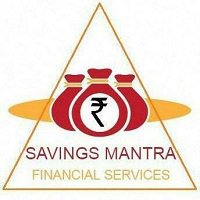7 lesser-known investments, expenditures eligible for tax breaks
ET Wealth decodes some of the lesser-known investments and expenditures that are eligible for tax breaks.
1. Deduction for pre-nursery
Claim relief on children’s play group, pre-nursery and nursery fees
Introduced in 2015, this is not as widely known as the deduction on school tuition fees.
Section: 80C
Maximum permissible deduction: Rs 1.5 lakh
What to watch out for: Benefits restricted to two children.
2. Reinvest PPF to save tax
Tap PPF account for this year’s tax-saving investments
The PPF scheme allows partial withdrawals from the seventh financial year.
Section: 80C
Extent of withdrawal permitted: Up to 50% of balance at the end of the fourth fiscal, preceding year of withdrawal or at the end of the fiscal preceding the year withdrawal, whichever is lower.
What to watch out for: As only one partial withdrawal is allowed per financial year, kicking off the tax-planning exercise and estimating amount needed early will help you.
3. Stamp duty also cuts tax
Claim deduction on stamp duty and registration fees paid while buying a house
This benefit can come in handy particularly for those who have taken a home loan towards the financial year-end as the principal component is lower in the initial years.
Section: 80C
Maximum permissible deduction: Rs 1.5 lakh
What to watch out for: Ensure that you claim the deduction in the financial year of purchase as it cannot be availed later.
4. Pay interest to parents
Pay interest on loan taken from parents to finance house purchase
Deduction allowed on home loan interest paid is not restricted to loans from banks and housing finance companies; this can be particularly useful if parents fall in lower tax brackets.
Section: 24B
Maximum permissible deduction: Rs 2 lakh
What to watch out for: Ensure that you pay interest on loans from parents and don’t forget to collect a certificate attesting the interest payment.
5. Rent to parents cuts tax
Pay rent to your parents and document it if you are living in a house owned by them
You can avail of house rent allowance (HRA) exemption, while you parents will be eligible for standard deduction and deduction on municipal taxes paid, resulting in savings for the entire family.
Section: 10(13A)
Maximum permissible deduction: Actual HRA received or excess of rent paid over 10% of salary or 50% of the basic salary (40% if you live in a nonmetro), whichever is lower.
What to watch out for: Make the landlord-tenant equation official. Get a lawyer to draw up a rent agreement containing details of rent payable and submit rent receipts to avoid rejection of the exemption later.
6. Tax break for group cover
Utilise tax break on group health insurance premium paid by you
If you are paying premiums on a group health cover purchased through your employer for yourself, spouse, children and parents, you are entitled to deductions just like independent, retail health covers.
Section: 80D
Maximum permissible deduction: Rs 75,000*
(* Total cap on tax benefits, assuming the tax-payer’s age is less than 60 years and parents are senior citizens)
What to watch out for: If your employer has funded the entire premium, you cannot stake a claim on the tax benefits.
7. Parents’ treatment eligible
Fund your parents’ medical expenses
It is common for elderly parents (aged 60 and above) to incur recurring expenditure on medicines; if you finance these expenses, you will be allowed tax breaks akin to health insurance premiums.
Section: 80D
Maximum permissible deduction: Rs 50,000
What to watch out for: This expense will not be allowed as a tax break if they are covered by a health insurance policy.
